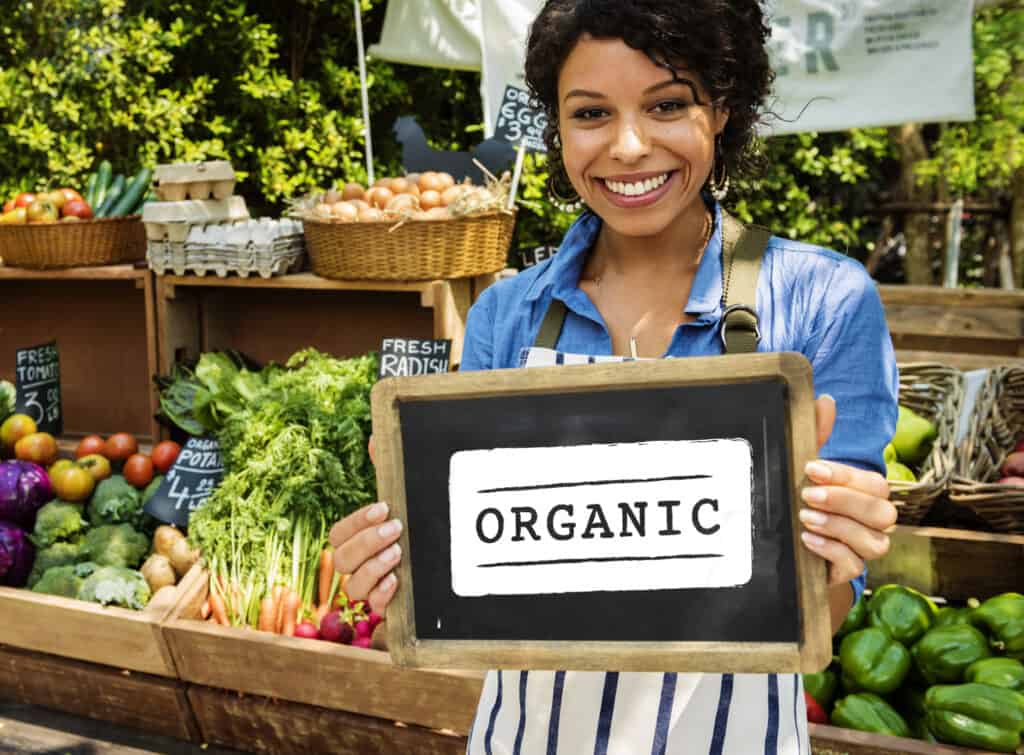Frequently asked questions-the truth about organics
There is a lot of misinformation about organics circulating around. Monsanto wants you to believe that pesticides are harmless and necessary to feed the planet. The USDA has an interest in promoting crops no matter what. And the medical experts-well, you can find any opinion you can imagine on the Internet. You’re left asking, really, what’s the truth about organics?
Are conventionally raised (non-organic foods) bad for your health?
According to Dr. Mark Hyman, author of “What the Heck Should I Eat?”, “Many studies have linked organic vegetables to a decrease in negative effects from pesticides and have found that organic vegetables contain more nutrients and phytochemicals than conventional ones. Studies in adults and children have linked pesticide exposure to cancer, as well as respiratory problems, depression and even Parkinson’s disease.”
So that would be a yes, but how “bad” for you depends on your age, health status, genetic, the volume of pesticide you eat, how often, over what period of time, your genetics, etc. There are many factors at work in the development of chronic disease, but pesticides can’t be that great for you. Pay now or pay later…especially if you’re a kid!
Are organics really free of all chemicals: pesticides or preservatives? Here’s the truth:
According to the Friedman School of Nutrition and Science Policy: “The concentration of pesticide residue on organic fruits and vegetables is substantially lower than that of conventional produce, but it is usually not zero.” There can be drift from neighboring fields that can’t be controlled.
Are non-GMO’s always organic?
No, but organics are always non-GMO. You can be sure you’re avoiding GMO’s if you buy organic, but non-GMO only means that the food is not from a “genetically modified organism.” You still won’t know what pesticides or herbicides might have been used.
Is organic food better for the environment?
It’s not an easy question to answer. I can tell you that organic farming is much better for farmers and ag workers. I buy organic bananas for this reason alone. Organic farming may use more land, but it doesn’t add chemicals to the soil, and it does promote more soil diversity. Organic farming may cause higher emissions, according to a 2018 Swedish study.
Is organic food healthier for you?
Tufts Healthy Nutrition Newsletter : “So there is no sure way to know whether that organic carrot is more nutritious than its conventional counterpart. Research on the subject varies, and more research is needed. Some studies, for example, have found higher concentrations of antioxidants in organically grown fruits and vegetables, or more diversity of beneficial bacteria in organic vs. conventional apples.”
Are antibiotics given to organic meat, eggs, or dairy animals?
No, they are not.
Does organic mean pesticide free? Here’s the truth:
Organic farmers use natural methods such as traps and and frequent inspection of crops. Catching pests early allow farmers to pick many of them off by hand.
How can I save money on organics?
Use the Dirty Dozen List and the Clean Fifteen List to target your spending. Prioritize your spending on what you and the fam eat the most of. Join a CSA (Community Supported Agriculture) program. You can also buy in bulk and share with others.
How are weeds controlled in organic farming?
By mulching, tilling, crop rotation, hand weeding or organic approved pesticides
Why do organics cost so much? Here’s the truth:
Labor costs are greater in organic farming, distribution can be inefficient and there are not the cost savings that Big Ag enjoys with volume farming and distribution. Organic farmers do not enjoy the same subsidies that conventional farmers do. The USDA does offer some grant programs to farmers who want to farm with organic methods.
Are organics worth the money?
Whatever you do, don’t give up eating fruits and vegetables because organics are much more expensive.
“Since the 1980s, we have seen again and again that people who eat more fruits and vegetables have lower risk of heart disease, stroke, diabetes, cancers, and many other chronic diseases…The vast majority of these have been conventionally grown. It’s possible organic produce is even more beneficial, but if the choice is between conventionally grown fruits and veggies or none at all, choose the fruits and veggies.”
Dariush Mozaffarian, MD, DrPH, dean of the Friedman School and Editor-in-Chief of Tufts Health & Nutrition Letter.
What if I can’t afford organics?
It’s hard to measure your risk of exposure to pesticides. If you eat a lot of anything on the Dirty Dozen list from the Environmental Working Group (ewg.org), you should buy organic if possible.
If it’s not possible, use a solution of a couple of teaspoons of baking soda to two cups of water and let the produce soak 15 minutes. This is your best bet. My post Can I Wash Pesticide Off of Produce goes into more detail about cleaning.
To learn more about what foods you should buy organic, beyond the Dirty Dozen List, check out my post What Foods Should I Buy Organic?

